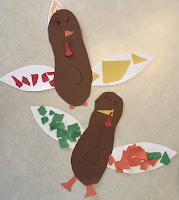A Chair For My Mother tells the story of a family saving up coins in a jar after they lose everything in a fire, to save up for something special. It shows how all the little coins come together to purchase something wonderful.In One Winter's Day, Hedgehog's nest blows away and he is left with only his hat, scarf and mittens. As the story goes on, he gifts these to other animals who need them more than he does. At the end, he is rewarded for being such a good friend.
Send a note home that invites everyone in the class (or at home) to contribute coins for a class giving project, and explain why this is so important. Children can get very caught up in the “receiving” part of the holidays, but may need a nudge to discover the joys of “giving.”
Contributions would be up to individuals and would be private, with students each feeling a part of the project, whether with just a few coins, or more. *tip: have coins on hand for those unable to bring in from home, so that they can feel a part of things too.
Talk with the children to decide what type of giving they would like to participate in as a class - possibilities could include food, toys, clothing, etc. Maybe even chart their answers to decide together.
 Next, choose some kind of container, and decorate it for whatever theme you want to convey to your students. If you are collecting to buy mittens or hats, you could find pictures and cover a plastic container. If your coins are going towards a toy drive, try using an actual toy for a container - maybe a small doll house or container truck :)
Next, choose some kind of container, and decorate it for whatever theme you want to convey to your students. If you are collecting to buy mittens or hats, you could find pictures and cover a plastic container. If your coins are going towards a toy drive, try using an actual toy for a container - maybe a small doll house or container truck :)
Make sure there is an opening for change to fit in and to be held for as long as your drive will take. If you are in-person or hybrid, you can place the container in your classroom. If remote, choose a day/time(s) to accept secure donations each week outside of school, leading into the holidays, with proper social distancing.
When all the coins are collected, purchase and display the items purchased, so that the children can feel the happiness that comes with giving gifts - you can send out photos, have them make cards, and even write about the experience! It all helps to make this a memorable event - and inspire a lifetime of giving :)
Have fun!






